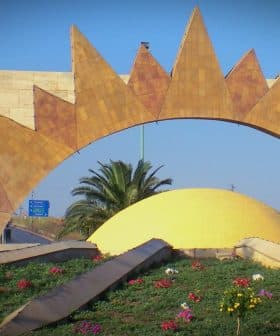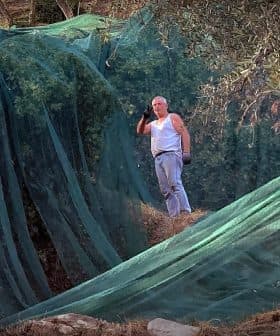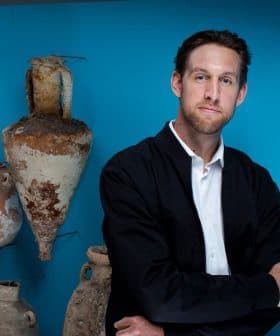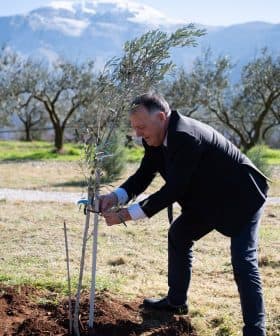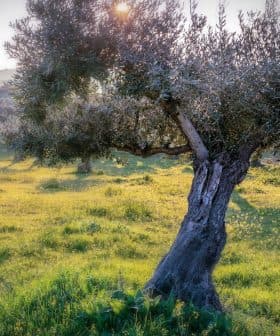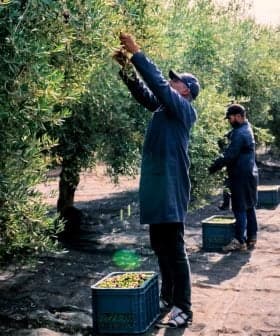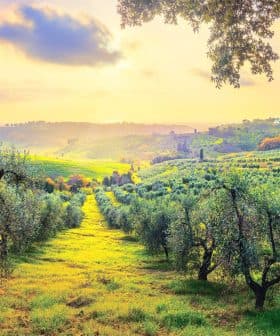Revitalizing Salento: Entrepreneurs Fight Xylella with New Ideas
Puglia's new generation of entrepreneurs is reviving the region's devastated olive industry, using innovative ideas and technologies to rebuild.
In Puglia, a new generation of entrepreneurs is revitalizing the area devastated by Xylella fastidiosa by repurposing wood from dead olive trees for construction, decoration, and art, while also replanting olive orchards with resilient varieties. The OlivaMi association supports local farmers by replanting trees in affected areas, providing adopters with olive oil, and transforming wood from affected trees into unique products, all while utilizing technology for reforestation and land enhancement.
In the southern Italian region of Puglia, a new generation of entrepreneurs is fighting against the decline of the area devastated by Xylella fastidiosa over the last ten years.
“We are working toward a new beginning, bringing fresh energy and ideas to this land and my grandfather’s olive farm,” said Lapo Pignatelli, owner of La Falca.
Pignatelli’s olive farm is located in the heart of Salento, the Apulian region hardest hit by Xylella fastidiosa.
The wood from the olive trees affected by Xylella, which are now being eradicated, represents an important resource that can have a valuable second life.
Paradoxically, the farm’s revitalization is funded by the same trees that dried up after being infected by the bacterium.
“When I returned to the farm after years of absence, the landscape had completely changed. Our centuries-old olive trees had died or were dying, and they had to be removed,” Pignatelli said.
During the removal operations, new ideas emerged. “I couldn’t bear that all that magnificent wood, which nurtured our land for centuries, would just be destroyed,” Pignatelli said.
See Also:Australian Growers on Alert After Xylella Fastidiosa Found in China“All of this needed a different approach. So, I decided to buy a sawmill to recover this wood, and that’s essentially where it all began,” he added.
This is how Tàccaru was founded, a company within the farm that processes dead olive trees and produces wood suitable for construction, decoration, design and art. Last year, Tàccaru contributed €30,000 of revenue to the company.
“We spoke with experts from the National Research Council, and they explained that dead wood cannot transmit Xylella fastidiosa and is completely safe,” Pignatelli said.
Meanwhile, new regional regulations allowed the reuse of a significant volume of high-quality wood from removed olive trees.
“This wood has extraordinary qualities. Its grain makes it visually striking; it’s hard, durable and naturally antibacterial. It already has its niche market among timber enthusiasts,” Pignatelli said.
Other regulations and initiatives enable locals to plant new olive orchards based on four olive varieties that are resilient to Xylella fastidiosa: Leccino, Favolosa, Lecciana and Leccio del Corno.
Pignatelli’s farm has restarted olive cultivation, beginning with five hectares of Favolosa and Leccino. “Then we learned about Lecciana, which can also be grown intensively,” he noted.
“One of our biggest challenges is the lack of workforce. We needed a fresh start with technology and mechanization,” Pignatelli explained.
As a result, new high-density orchards have been planted, groves that a small team can manage efficiently.
“If you want specialized workers who stay with you long-term, you need to offer more than just seasonal employment,” Pignatelli said.
Thus, the Tàccaru project helps the farm retain employees, who split their time between the orchards and the sawmill.
“We will soon invest in oleotourism,” Pignatelli added, hinting at renovation work currently underway at the family’s historic farmhouse.
“Many young entrepreneurs are restarting from similar points, replanting olive trees. There’s a new energy in the area,” he said. “This season, we hope for our first real olive harvest. Of course, we remain at the mercy of the weather.”
Similar enthusiasm drives the project initiated by the OlivaMi association, aiming to breathe new life into wood harvested from Xylella-affected trees while revitalizing the olive economy.
“The original idea behind OlivaMi came from British tourists who fell in love with Salento. They saw our region become increasingly darkened and sad year after year due to Xylella,” Chiara Nocco, community manager at OlivaMi, told Olive Oil Times.
The OlivaMi project began its initial fundraising round in January 2022 to help replant trees in Salento’s affected areas.
“The association promotes adopting olive varieties resilient to Xylella,” Nocco said. For each tree adopted, the association provides the adopter with one liter of extra virgin olive oil.
“We label each adopted tree with the adopter’s name, the tree’s name and a unique adoption code,” Nocco explained.
Funds raised support local farmers who care for these trees and finance planting new orchards throughout the region.
“Since 2022, more than 25,000 people have participated in the project, over 200 companies actively contribute and more than 40,000 olive trees have been donated to over 250 olive farmers,” Nocco said.
“The wood from the olive trees affected by Xylella, which are now being eradicated, represents an important resource that can have a valuable second life,” she added.
“We’ve collaborated with local artisans to transform some of this wood into unique items that tell the story of our territory’s resilience,” she said.
OlivaMi’s online shop features a wide range of products crafted from olive wood and other pieces used to create plaques displaying the names and logos of collaborating companies.
“Our mission is to transform and give value to every part of the olive tree, maintaining a strong connection between nature, tradition and innovation,” Nocco emphasized.
“Our association was established to support small landowners who cultivate olives out of passion, preserving traditions handed down from our parents and grandparents,” she added. “People without assistance from the state or the European Union.”
Small landowners in Salento can contact the association through a request form on its website.
“All the trees donated so far have been purchased with funds raised through adoptions by families, businesses, or through celebratory gifts,” Nocco said.
OlivaMi’s members are committed to employing the latest technologies in the field and business development.
“Technological innovation is crucial for reforestation and land enhancement, making the processes more efficient, sustainable and easier to monitor,” Nocco said.
The association utilizes advanced precision agriculture tools to monitor tree health, optimize irrigation and prevent potential diseases.
“Blockchain technology also plays an important role,” Nocco said. “We launched a spin-off project, Carborea, which enables us to generate and certify carbon credits from new olive plantings.”
According to the association, technology is pivotal in shaping a brighter future for the region. “It also makes the process more engaging, helping us involve younger generations,” Nocco concluded.
Share this article


